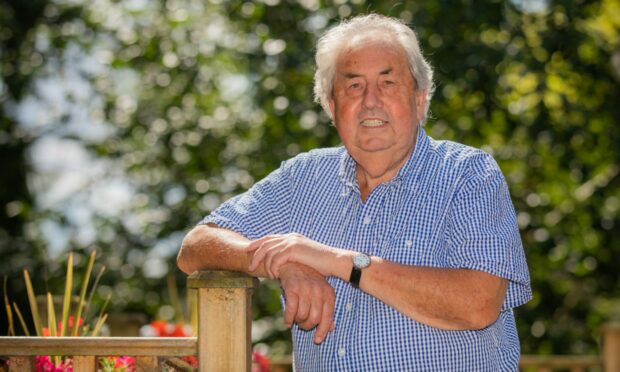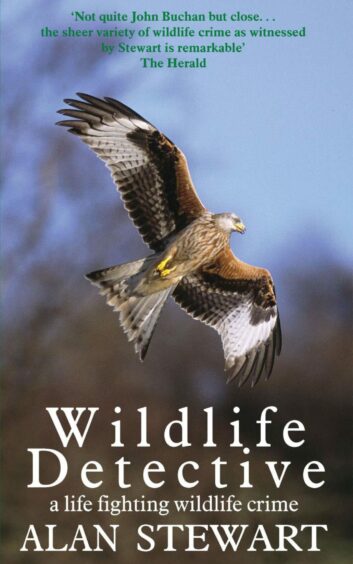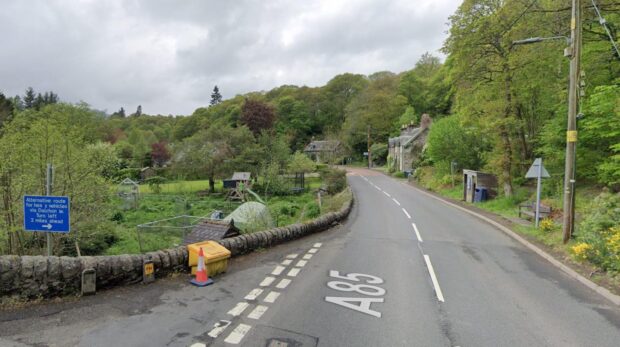It’s 15 years since retired Perthshire police inspector Alan Stewart published his first book Wildlife Detective.
Now, due to copies selling out at independent book sellers, a third re-print has just been launched.
It includes a new front cover and a new introduction which brings it up to date in terms of tougher wildlife crime legislation in Scotland.
“People I think are interested in wildlife and they are interested in crime, and if the two combine I think that certainly helps to sell a book,” says the 75-year-old.
“It’s a thick book, nearly 400 pages and that maybe attracts folk too.
“I think in relation to this one it goes into a lot of the cases I dealt with in relation to poaching – deer poaching and salmon poaching – and there was a lot of trailing about in the middle of the night up and down rivers in the dark.
“But there was a lot of funny parts to it too.”
Career in the police
Born in Perth, Alan, who was once described as ‘Britain’s foremost wildlife detective’, is a former pupil of Craigie School and Perth High School.
He worked on the Dupplin Estate before starting as a police cadet in 1964, spending time as a constable in Dunblane and Perth.
He spent a significant part of his career in CID and with the drugs squad.
He was promoted to inspector in 1993, covering Crieff and Kinross, and retired after 31.5 years police service in 1997.
During his last four years with the force, he was Tayside police’s first dedicated wildlife crime officer and in 2001 he was awarded the MBE for services to policing wildlife crime.
He was re-employed as a civilian full-time wildlife crime co-ordinator – a role he held until 2011 – and also served as intelligence officer with the Livingston-based National Wildlife Crime Unit.
He investigated everything from bird of prey persecutions, to illegal trapping, poisoning, shooting, and poaching of salmon, game and deer.
It was when he starred in the 2007 BBC documentary Wildlife Detectives about the work of wildlife officers in Scotland, however, that he took his first foray into writing wildlife books after it was suggested he should write a book to accompany the series.
Since then he’s written eight other books, including crime fiction.
His other books include The Thin Green Line – a compilation of his colleagues’ wildlife crime investigations covering the whole of the UK; the Lone Furrow on more recent wildlife crime investigations; Wildlife and the Law and Walking with Wildlife, written between August 2018 and August 2019, gave him the chance to revisit haunts of his youth and observe intimately how things have changed on the Dupplin Estate.
But “for some reason”, he says, people keep coming back to his original Wildlife Detective book.
Public interest
“People are always interested in crime – particularly when the criminal gets caught,” he says.
“It’s not always a feature, because a lot of these wildlife criminals don’t get caught.
“But they like to see them caught.”
One such true story people have enjoyed is the ‘Buttonless Jacket Gang’.
“There were these three guys that were netting rabbits in the middle of the night,” he recalls.
“It was the gamekeepers that stopped them initially.
“They realised when they saw their jackets tied with string and no buttons on them that they had been netting, because if you’ve got buttons or anything that’s going to snag it’s a disaster in the dark.
“If you want to net in the dark you take your buttons off and tie your jacket shut if you want it shut with a bit string. But that was their downfall!”
Wildlife Detective by Alan Stewart is published by Thirsty Books, £15, ISBN: 978 1 7399922 0 0.
It’s available from independent book sellers and the publisher. Signed copies are also available direct from the author who can be contacted via Twitter.














Conversation